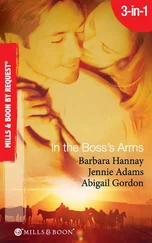Joseph Gordon - The Chronicles of a Gay Gordon
Здесь есть возможность читать онлайн «Joseph Gordon - The Chronicles of a Gay Gordon» — ознакомительный отрывок электронной книги совершенно бесплатно, а после прочтения отрывка купить полную версию. В некоторых случаях можно слушать аудио, скачать через торрент в формате fb2 и присутствует краткое содержание. Жанр: foreign_antique, foreign_prose, на английском языке. Описание произведения, (предисловие) а так же отзывы посетителей доступны на портале библиотеки ЛибКат.
- Название:The Chronicles of a Gay Gordon
- Автор:
- Жанр:
- Год:неизвестен
- ISBN:нет данных
- Рейтинг книги:3 / 5. Голосов: 1
-
Избранное:Добавить в избранное
- Отзывы:
-
Ваша оценка:
- 60
- 1
- 2
- 3
- 4
- 5
The Chronicles of a Gay Gordon: краткое содержание, описание и аннотация
Предлагаем к чтению аннотацию, описание, краткое содержание или предисловие (зависит от того, что написал сам автор книги «The Chronicles of a Gay Gordon»). Если вы не нашли необходимую информацию о книге — напишите в комментариях, мы постараемся отыскать её.
The Chronicles of a Gay Gordon — читать онлайн ознакомительный отрывок
Ниже представлен текст книги, разбитый по страницам. Система сохранения места последней прочитанной страницы, позволяет с удобством читать онлайн бесплатно книгу «The Chronicles of a Gay Gordon», без необходимости каждый раз заново искать на чём Вы остановились. Поставьте закладку, и сможете в любой момент перейти на страницу, на которой закончили чтение.
Интервал:
Закладка:
On arriving in London I duly wrote to the Adjutant at Woolwich, informing him that I had arrived safely in England after my campaign in the North of Spain, and that the next day, which happened to be Tuesday, I would deliver myself as a prisoner, absent without leave, at the Guard Room at 12 o’clock noon. This I did, and I was met by the gallant Adjutant, and a guard, and was promptly put under arrest. Some of my contemporaries may still remember the occasion of my return. Numerous had been the rumours about my doings. At times I was reported dead. At other times I was rapidly being promoted in the Carlist Army. I had also been taken prisoner by the Government troops, tried by court-martial, and sentenced to durance vile in the deep dungeons of some ancient fortress. Their sympathies for me had risen to enthusiasm or were lowered to zero, according to the rumours of the day, but they were all glad to see me back. Still they pitied me indeed, as they wondered amongst themselves what my fate was now to be.
The preliminary investigation into my disorderly conduct took place before the Colonel Commanding, and I was then remanded to be dealt with by the Governor. I was duly marched in to his august presence, under armed escort, and, after having had the charge of being absent without leave duly read to me, I was called upon by him to make any statement I wished with reference to my conduct.
As I have already said, I had learnt English only after I was thirteen years of age, and on joining at Woolwich I still spoke English with a considerable foreign accent, which perhaps had become more marked during my recent protracted visit to Don Carlos and his Army. I have always noticed that when one gets excited a foreign accent becomes more accentuated. It undoubtedly did on this occasion, especially when I endeavoured to give a description of some of the fighting in the course of my statement. I even ventured to ask that I might be given a piece of paper and a pencil to jot down the dispositions of the opposing forces which took part in one of our biggest fights. I had barely made the request when the Governor stopped me and said: “Do you mean to tell me that you have picked up a foreign accent like this during the short time that you have been in Spain?” “Oh, no, sir, I have always had it. I mean, I’ve had it ever since I learnt English.”
Sir Lintorn looked serious when I said this. A smile flitted across the countenances of the Colonel Commanding and the Adjutant – and even of the escort. “When did you learn English – and where? And where do you come from?” “I learnt English,” I answered, “about five years ago at the Oratory at Edgbaston, Birmingham, and I spoke Spanish before that.” “What countryman are you, then?” “Well,” I said, “my father is Scotch, my mother is Irish, and I was born in Spain. I’m not quite sure what I am.”
This time the smile turned into suppressed laughter. General Simmons looked at me for a short instant. Then he, too, smiled and said, “Well, I am going to let you off. You must take your chance of getting through your examination, considering the time you’ve lost. I let you off because I feel that the experiences you have gained may be of good value to you.” Turning to the Adjutant he said, “March the prisoner out and release him. Tear up his crime sheet.”
I forget now the wonderful escapes from tight corners in the field, the glowing descriptions of the valour of the Carlists, the number of times that Staff Officers had asked for my advice as to the conduct of the war, and the many other extraordinary tarradiddles that I poured, night after night, into the willing ears of my astounded and bewildered fellow cadets. One curiosity, however, may be mentioned. Amongst the most energetic of Don Carlos’s officers was his sister, Princess Mercedes, who personally commanded a cavalry regiment for some considerable time during the war.
The rest of my stay at Woolwich was uneventful. I did manage to get through the examination at the end of the term, but this was chiefly owing to the generous help of those cadets in my term who personally coached me in such subjects as I had missed. A year afterwards, at the end of the fourth term, the Royal Regiment of Artillery was short of officers. The numbers of cadets in the A Division leaving the “Shop” was not sufficient to fill the vacancies. Some eight extra commissions were offered to the fourth term cadets who were willing to forgo their opportunities of qualifying for the Royal Engineers by remaining for another term. A gunner was good enough for me, and I was duly gazetted to the regiment.
I am just here reminded of an incident which took place on the day on which His Royal Highness the Duke of Cambridge attended the Academy to bestow the commissions and present the prizes on the breaking-up day. The Prince Imperial of France had been a cadet with us. On that particular occasion he was presented with the prize for equitation, of which he was very proud. He was a good sport. He was very keen on fencing, but he had been taught on the French lines, and, as the French system was different from our English system he did not enter his name for the fencing prize. But he said that he would like to have a go with the foils against the winner of the prize. I had happened to win it. The little encounter was arranged as an interlude in the athletic exhibition forming part of the day’s function. We masked. We met. I was just starting to do the ceremonial fencing salute which generally preceded the actual hostilities, when he came to the engage, lunged, and had it not been for the button of the enemy’s foil and my leather jacket, there would have been short shrift for J. M. G. He quickly called “One to me.” Then I quickly lunged, got home, and called out, “One to me.” Next instant we both lunged again, with equal results. We would have finished each other’s earthly career if there had been no buttons and no leather jackets. The referee sharply called “Dead heat. All over.” We shook hands in the usual amicable way and had a good laugh over the bout.
We parted on that occasion on our different roads in life – he shortly afterwards to meet his untimely end in the wilds of South Africa. Later on I remember attending his funeral. His death was indeed a sad blow to his mother, the Empress Eugénie, whose hopes had been centred on him her only son. I well remember, as a youngster, when visiting Madrid with my mother, looking forward to be taken to see her mother, the Countess of Montijo, who, with my grandmother, had been lady-in-waiting to Her Majesty Queen Christina.
Just lately I was at Jeréz again, when the ex-Empress Eugénie motored from Gibraltar to Seville, accompanied by her nephew the Duke of Alba. They stopped for luncheon at the Hotel Cisnes. I had the honour of a conversation with her. Her brightness and her memory were quite unimpaired though in her ninety-fifth year. She recollected the incident of the fencing bout at which she had been present. Now she has passed away to her rest.
Gazetted Lieutenant, Royal Artillery, March, 1876, I was ordered to join at the Royal Artillery Barracks, Woolwich, in April.
CHAPTER V
MY MEETINGS WITH KING ALFONSO
While the exiled Prince Imperial was at the Royal Military Academy at Woolwich another exiled Royal Prince, in the person of Alfonso XII, father of the present King and the successful claimant in the great Carlist struggle, who came to his own in 1875, was undergoing training in the Royal Military College, Sandhurst. I came to know him intimately during his stay in England owing to the fact that the Count of Mirasol, whose sister married my eldest brother, was his tutor and factotum.
I well remember what pleasure it was to me every time Mirasol asked me to spend the week-end with Alfonso in town. It was winter time, and one of our favourite resorts was Maskelyne and Cook’s. We were never tired of watching their wonderful tricks. One afternoon we went to their theatre, the Hall of Mysteries, with two young nephews of mine who had just come from Spain and did not know English. One of the feats we saw was that of a man standing on a platform leading from the stage to the back of the audience, and then rising when the lights were lowered towards the roof of the building. The audience were warned to keep quiet and still while this wonderful act took place. One of my young nephews, who had not understood the warning given, happened to be next the platform. When the lights were lowered and the man started on his aerial flight, my young nephew took my walking stick and struck the uprising figure. The lights went up and we were requested to leave the theatre. Alfonso protested, but Mirasol assured him that discretion was the best part of valour.
Читать дальшеИнтервал:
Закладка:
Похожие книги на «The Chronicles of a Gay Gordon»
Представляем Вашему вниманию похожие книги на «The Chronicles of a Gay Gordon» списком для выбора. Мы отобрали схожую по названию и смыслу литературу в надежде предоставить читателям больше вариантов отыскать новые, интересные, ещё непрочитанные произведения.
Обсуждение, отзывы о книге «The Chronicles of a Gay Gordon» и просто собственные мнения читателей. Оставьте ваши комментарии, напишите, что Вы думаете о произведении, его смысле или главных героях. Укажите что конкретно понравилось, а что нет, и почему Вы так считаете.












